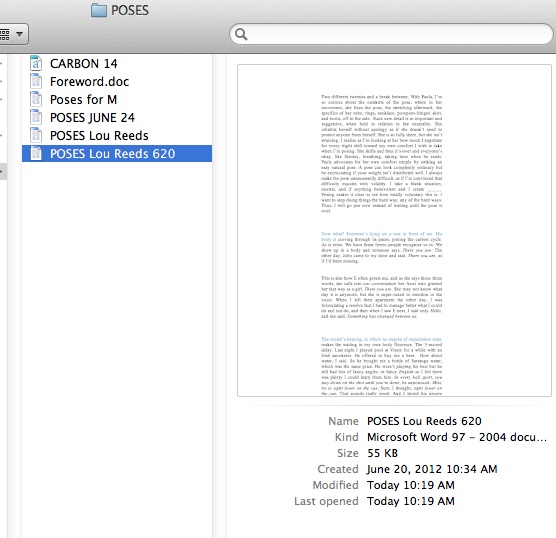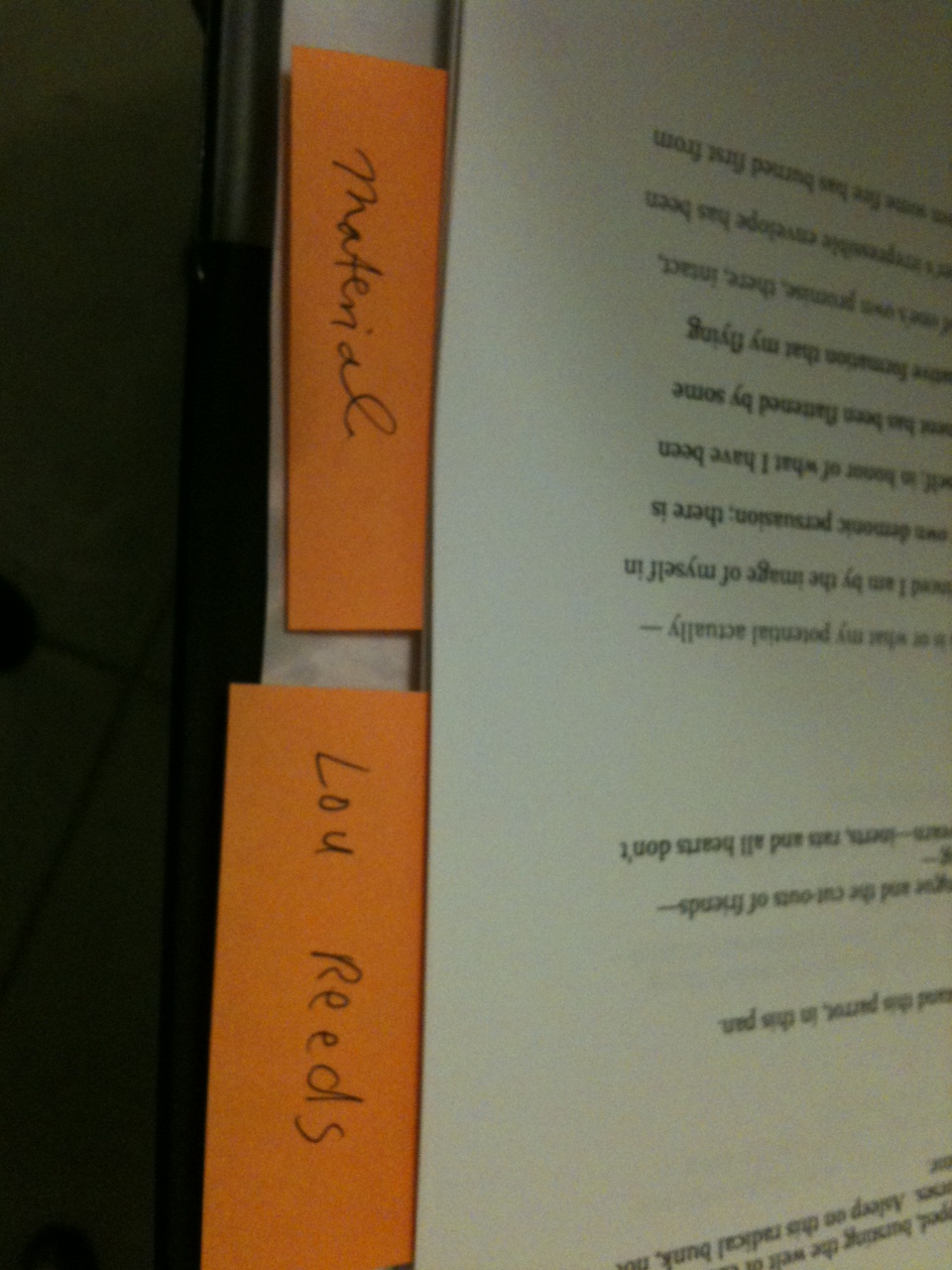I’m particularly interested lately in what it takes to finish something, being, myself very good at starting things, but less equipped when it comes to signing off on something. So I’ve been working on what I’m calling “finisher’s mind,” the ability to see something through.
My friend Farnoosh and I have a tradition we call LouReeding that is extremely helpful in that stage when something’s almost “finished,” but needs to be considered from a fresher perspective, usually not one’s own. The verb “to LouReed” is inspired by this clip below from Homeland: The Story of the Lark, in which Laurie Anderson talks about moving through a profoundly murky phase of making Homeland.
After watching this video below, we started to ask each other, “Can you LouReed this? Meaning, The piece is pretty much almost there, but what works better, this word or this word? Or it could be about helping to decide between two different versions of a sentence, or poem. Or whether to include a poem in a manuscript. Pretty much any place where you feel hung up, and that your own judgment has become weary. To LouReed something is to offer a friend whatever witness and listening helps her have the heart tolerate the uncertainty of finishing something.
We invoke Lou Reed’s name with the deepest honor for the process he and Laurie Anderson describe in this account, the scale of the undertaking of Homeland, and the profound mutual respect in their relationship.
When we say it, we call into play all the ways one person can be present for another. On whatever scale. Having a witness can help you let one option go, in favor of another. The other night, it literally came down to hamster or gerbil. With the help of Farnoosh’s LouReeding, I decided on hamster. She said, That was one of the best LouReeds yet.
Here’s a transcript of the end of the video:
Laurie Anderson: I was going to give up because it was simply too daunting, and too lonely, so I’m kind of crying about it every day, and finally Lou –and that’s Lou Reed, the guitar player, and my husband, and my best friend of nineteen years got a little sick of hearing this and said listen I’m going to sit with you until you finish it. And I said, no you’re joking right? Who would do that?
Lou Reed: Sometimes it’s useful to have somebody else come in who loves and admires the thing you’re working on, but maybe has a little bit of distance. The author may be so deep in, in her case, 106 tracks– What do you do with 106 tracks? It’s almost–
Laurie Anderson: He became familiar with the million little pieces. It was a way for me to go, “It could either go these six ways, and he’d go ‘#3.'”
Lou Reed: It’s useful maybe, not maybe, it’s useful to have someone you can trust, who’s on your side, not trying represent the point of view of the record company, or their own whatever, just help you get were you wanted to go with the thing as soon as possible.
Here’s Farnoosh’s notebook:
And here’s my own file in which I was putting various passages that were still a bit unclear. It helped to have them in a specific place that held the promise of LouReeding. 


